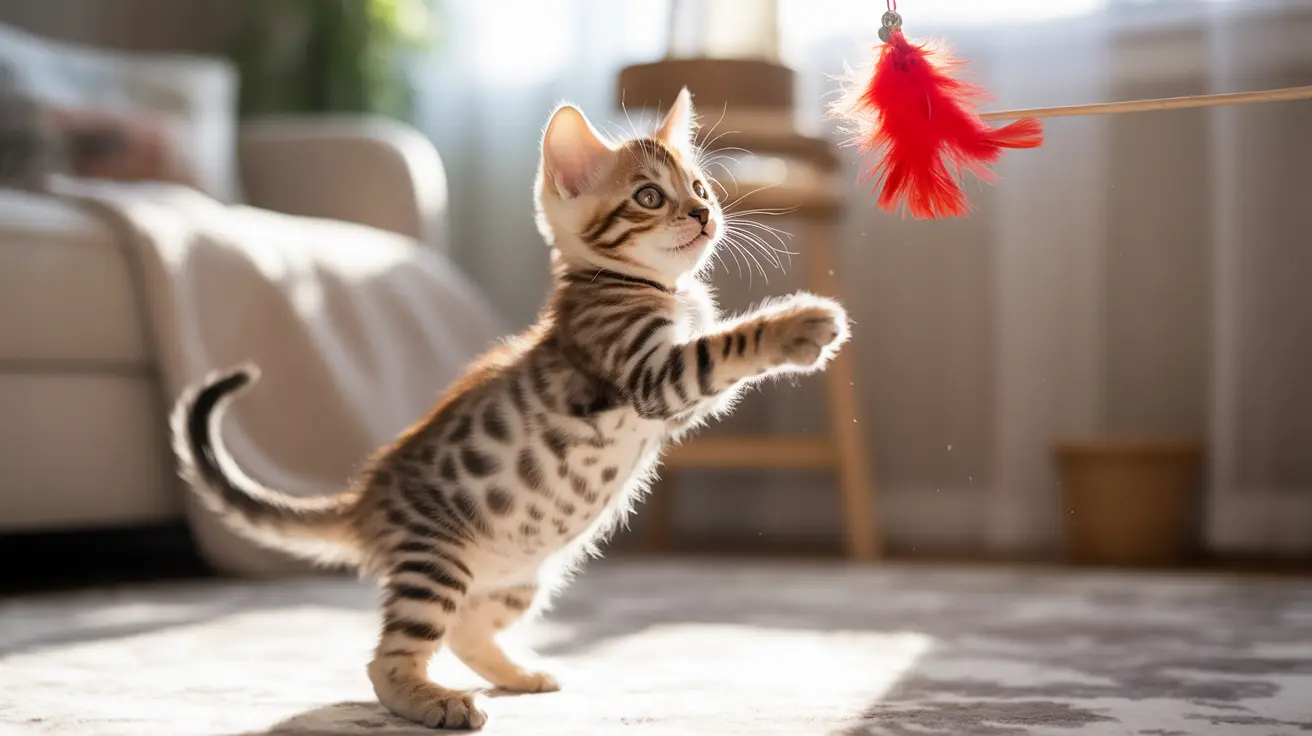The Foundation of Feline Intelligence
The cat brain is a marvel of evolutionary engineering, containing approximately 203 million cortical neurons. This sophisticated organ features a folded surface structure (gyrencephalic), similar to human brains, which maximizes processing power in a compact space. From birth, this complex organ undergoes remarkable changes that shape a cat's future personality and capabilities.
Critical Stages of Brain Development
The Newborn Period (0-2 Weeks)
Kittens are born with most of their neurons in place, but the real magic happens in the connections forming between these cells. During these first two weeks, their brains rapidly create new neural pathways, establishing the foundation for future learning and development.
The Socialization Window (2-7 Weeks)
This period is crucial for healthy brain development. Kittens experiencing positive handling and diverse stimuli during this time develop larger brains and better learning capabilities. Just 15-40 minutes of daily handling can make a significant difference in their cognitive development.
Nutrition's Role in Brain Health
Proper nutrition is fundamental to healthy brain development. Taurine, an essential amino acid, plays a vital role in brain and visual development. Without adequate taurine, kittens may experience abnormal brain development and potential vision problems. Quality kitten food ensures they receive all necessary nutrients for optimal brain growth.
The Power of Play and Learning
Play isn't just fun – it's crucial for brain development. Through play, kittens develop motor skills, social abilities, and problem-solving capabilities. Interactive play sessions help form new neural connections and strengthen existing ones, contributing to better cognitive function throughout life.
Supporting Adult Brain Health
Even in adulthood, cats continue to learn and adapt. Environmental enrichment, regular play sessions, and consistent routines help maintain cognitive function. Watch for any sudden behavioral changes, as these might indicate neurological issues requiring veterinary attention.
Frequently Asked Questions
How does a kitten's brain develop during the first few weeks of life?
During the first few weeks, kittens' brains rapidly form new neural connections, estimated at up to 50,000 per second during peak periods. Their sensory systems activate sequentially, with hearing and vision developing by week two, followed by motor skills and coordination.
What role does early socialization play in a cat's brain development and behavior?
Early socialization is crucial for healthy brain development. Kittens exposed to various experiences and positive handling during weeks 2-7 develop larger brains, better learning abilities, and more stable personalities in adulthood.
Which nutrients are essential for healthy brain growth in kittens?
Taurine and choline are particularly crucial for brain development. Taurine supports proper brain and visual development, while choline aids in neurotransmitter production. A balanced diet specifically formulated for kittens ensures proper brain development.
How can play and interaction influence a cat's cognitive abilities?
Play stimulates neural development, improves problem-solving skills, and enhances motor coordination. Regular interactive play sessions help maintain cognitive function throughout a cat's life and strengthen the human-animal bond.
What signs might indicate brain injury or cognitive decline in adult cats?
Watch for changes in behavior, disorientation, altered sleep patterns, or difficulty with familiar tasks. These could indicate neurological issues or cognitive decline and should prompt a veterinary consultation.
Conclusion
The development of a cat's brain is a remarkable journey that sets the foundation for their entire life. By understanding this process, we can better support our feline companions through each developmental stage, ensuring they reach their full potential for a happy, healthy life.






